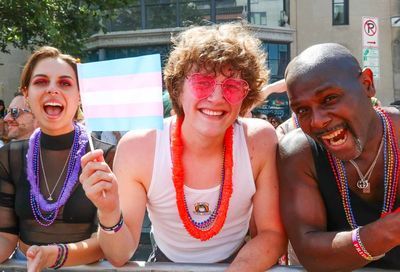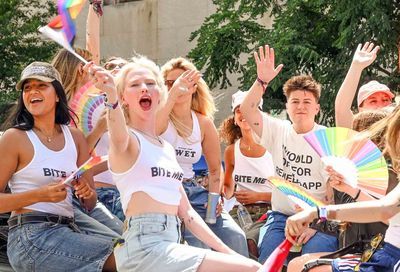Congressional Bill Would Make Monkeypox Testing Free of Charge
Rep. Sean Patrick Maloney's legislation would allow Americans to get tested without incurring out-of-pocket expenses.

U.S. Rep. Sean Patrick Maloney (D-N.Y.), one of only nine LGBTQ members of Congress, has introduced a bill to offer no-cost testing for monkeypox.
The “No Cost for Monkeypox Testing Act,” would ensure that no out-of-pocket costs for testing would be incurred by Americans, regardless of insurance status.
If passed, people with group or individual health insurance coverage, Medicare beneficiaries, individuals insured through Medicaid, CHIP, the Indian Health Service, Tricare, or VA health care would not have to pay deductibles or co-pays at point of service, or receive prior authorization before the costs of testing were covered. The bill also directs the Secretary of Health And Human Services to establish a program that can cover the cost of testing for uninsured individuals.
The bill comes as the number of confirmed cases of monkeypox infection in the United States has surpassed 10,000, with many localities complaining about a lack of or inability to access testing, preventative measures like vaccines, and treatments for those already infected.
The increase in cases also confirms the need for expansive testing — which Maloney’s bill seeks to make easier to access — as well as contract tracing, to allow people to quarantine themselves for the appropriate length of time and avoid infecting others.
“It is critical that we eliminate cost as a barrier to testing for monkeypox to ensure we can identify cases and prevent further spread,” Maloney said in a statement. “This legislation takes the lessons we learned from past public health emergencies and protects those at risk of contracting monkeypox by making tests accessible to everyone.”
Last week, the Biden administration declared the current monkeypox outbreak a national health emergency, and has since issued new guidance advising medical providers to administer doses of the Jynneos vaccine intradermally, or between layers of the skin, rather than subcutaneously, or in the fatty tissue underneath the skin.
According to Bob Fenton, the White House’s national response coordinator for monkeypox, changing how the doses are administered will increase by fivefold the number of potential doses available to higher risk populations, which include men who have sex with men, transgender women, commercial sex workers, and people who work at places like gyms, bathhouses, or sex clubs.
While the overwhelming majority of monkeypox cases have occurred among men who have sex with men, public health officials have warned that anyone can contract the disease if they come into contact with lesions caused by the monkeypox virus or if they handle bedding, clothing, or other items that have touched lesions or contain bodily fluids. The disease is primarily passed on by skin-to-skin contact, such as through sex, hugging, or cuddling, or by respiratory droplets during prolonged face-to-face contact with an infected person.
The CDC recommends vaccines to protect people from monkeypox illness before and after exposure. But most experts say administering vaccines within four days of the date of exposure can help prevent illness, or lessen the severity and duration of symptoms, which can be highly uncomfortable.
In July, Maloney, along with three other fellow New York members of Congress, previously sent a letter to the director of the Centers for Disease Control and Prevention and the Department of Health and Human Services calling for additional vaccines for at-risk communities in New York, where a limited number of vaccine doses have left many gay and. bisexual men frustrated after standing in line for several hours to get vaccinated, only to be turned away. New York has the highest number of confirmed cases in the country, at 2,132.
“[Y]our agencies have a duty to react in a timely and effective matter that works to curb the spread of monkeypox before case counts rise at a rate beyond control,” Maloney and his colleagues wrote in the letter. “Historically, the federal government has turned a blind eye to dire health crises in the LGBTQ community, and we urge you to do all you can to not let these vulnerable Americans be a casualty of a cumbersome or bureaucratic response.”
Support Metro Weekly’s Journalism
These are challenging times for news organizations. And yet it’s crucial we stay active and provide vital resources and information to both our local readers and the world. So won’t you please take a moment and consider supporting Metro Weekly with a membership? For as little as $5 a month, you can help ensure Metro Weekly magazine and MetroWeekly.com remain free, viable resources as we provide the best, most diverse, culturally-resonant LGBTQ coverage in both the D.C. region and around the world. Memberships come with exclusive perks and discounts, your own personal digital delivery of each week’s magazine (and an archive), access to our Member's Lounge when it launches this fall, and exclusive members-only items like Metro Weekly Membership Mugs and Tote Bags! Check out all our membership levels here and please join us today!
































You must be logged in to post a comment.